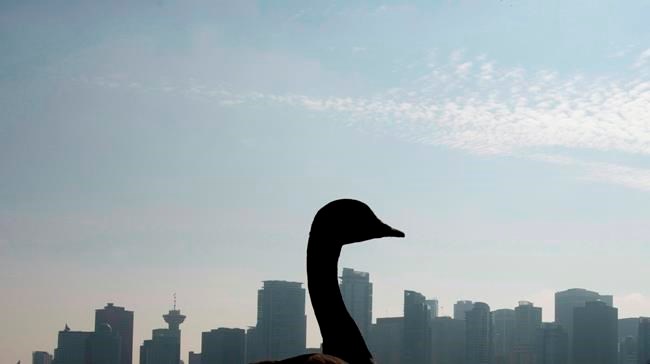VANCOUVER — The booming population of Canada geese is "wreaking havoc" on Vancouver's green spaces, and the park board is asking for help in keeping their numbers in check.
The Vancouver Board of Parks and Recreation wants the public to report a nest sighting so staff can replace the eggs with ones that have been frozen to help control the population.
Vancouver is an ideal habitat for the birds, with few natural predators and plenty of newly seeded fields and lawns.
However, the board says the birds have an inefficient digestive system, prompting them to defecate about every 12 minutes, presenting "a significant challenge" to clean.
It says their growing population causes damage to parks, pollutes outdoor swimming pools and beaches, and destroys juvenile salmon habitat, in addition to their aggressive behaviour during mating season.
The board says replacing eggs, in a process known as addling, is one of the most humane ways to control the birds' population, and staff have federal government approval for the practice.
The board says in a statement that in the last decade, thousands of goose eggs have been addled.
"Ultimately, the success of the program is dependent upon the public’s support in reporting nests. Geese have adapted to the urban landscape by nesting in spaces far above ground, typically balconies, ledges and rooftops."
This report by The Canadian Press was first published March 27, 2023.
The Canadian Press



